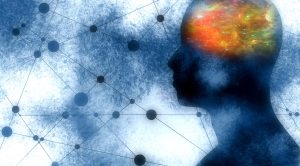Oklahoma Bar Journal
The Back Page | My Lucky Mental Illness
By Tom Hird
I came out of the mental illness closet earlier this year in a talk I gave to the Oklahoma Pardon and Parole Board. A co-worker told me I was brave, but considering I was diagnosed with manic depression (bipolar disorder) in 1984 and am just now talking about it in public, I feel the opposite.
I told the board members how fortunate I was compared to so many that come before them. Deeply harmful childhood trauma and deprivation are just one piece of the mental health puzzle for so many in our state’s prisons. Oklahoma has not done enough for its mentally ill, and many fall through the cracks. From what I hear, this is currently trending in the wrong direction, which will have costly consequences.

© JEGAS RA | #185710915 | stock.adobe.com
My mental health story is different from the stories of Oklahoma’s incarcerated mentally ill – not part of the least among us, not mired in deprivation and trauma, I had a great childhood (no comorbidities based on trauma, brain damage, anxiety, abuse, etc.). My loving family had the resources and knowledge to get me the medical care I needed, as well as places to stay and even jobs. As a result, I’ve done alright. I was lucky.
There is stigma associated with mental illness, and there are dangers associated with mental health issues. But there are people living well with mental illness all around you: family, friends, neighbors and co-workers.1 There are so many effective treatments out there. The people in your life dealing with mental health issues are doing alright and functioning members of society, but remember we were likely given more of a chance than Oklahoma’s poor incarcerated mentally ill ever were (no doubt the pandemic is making things harder on everyone right now).
It is easier to think of the mentally ill, the homeless, the incarcerated, as different from you and me, as “the other.” We are not. I know this and more thanks to my lucky mental illness.
Mr. Hird practices in Oklahoma City.
Note: The OBA Lawyers Helping Lawyers Assistance Program assists OBA members who are having difficulties that adversely affect their practice. All bar members are offered up to six hours of free short-term, problem-focused or crisis counseling, and the service is strictly confidential. For help, call the Lawyers Helping Lawyers hotline at 800-364-7886 to be referred to a counselor in your area. The hotline is available 24 hours a day / 7 days a week.
For more information visit okbar.org/lhl.
- One in four adults suffer from a diagnosable mental disorder in a given year.
www.hopkinsmedicine.org/health/wellness-and-prevention/mental-health-disorder-statistics.
Originally published in the Oklahoma Bar Journal – OBJ 92 Vol 9 (November 2021)
